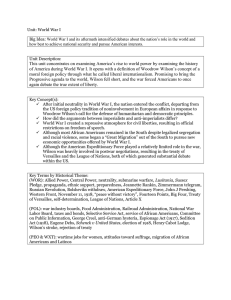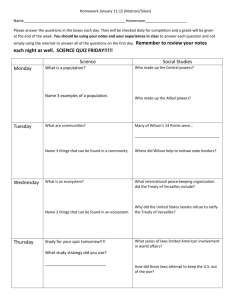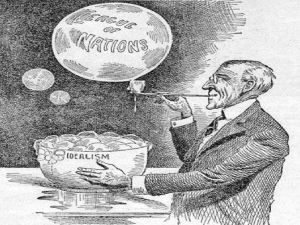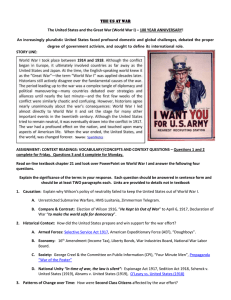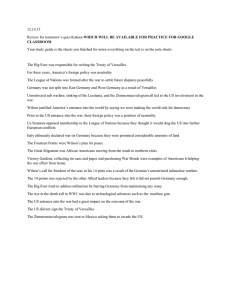APUSH: Chapter 22.2 Reading Guide
advertisement
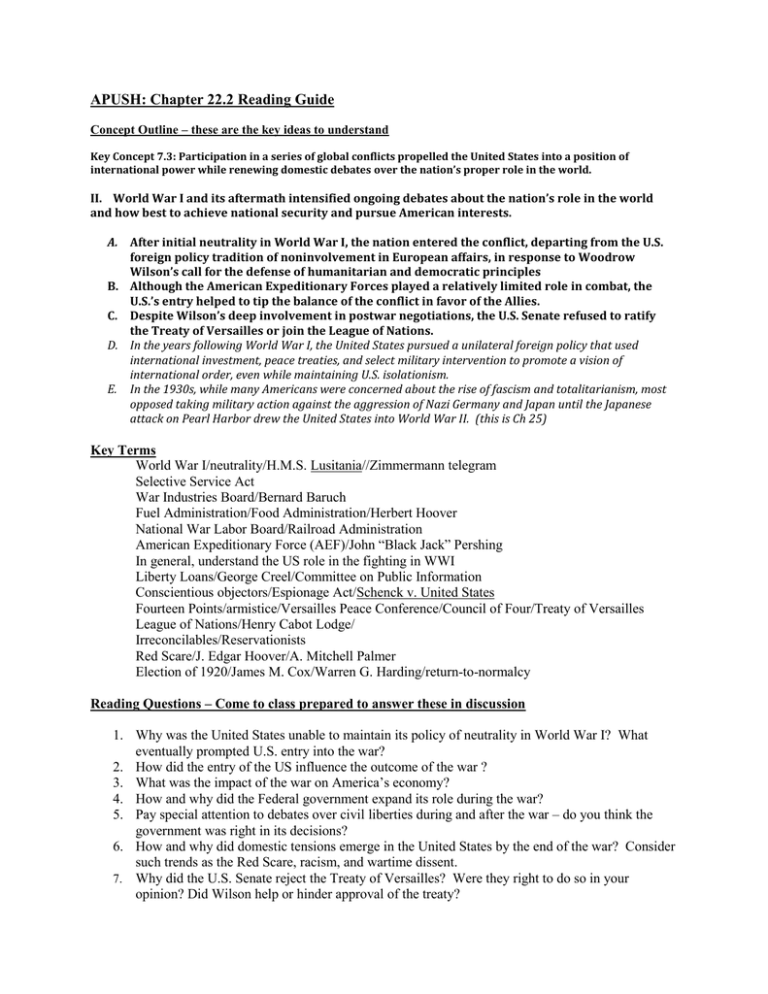
APUSH: Chapter 22.2 Reading Guide Concept Outline – these are the key ideas to understand Key Concept 7.3: Participation in a series of global conflicts propelled the United States into a position of international power while renewing domestic debates over the nation’s proper role in the world. II. World War I and its aftermath intensified ongoing debates about the nation’s role in the world and how best to achieve national security and pursue American interests. A. After initial neutrality in World War I, the nation entered the conflict, departing from the U.S. foreign policy tradition of noninvolvement in European affairs, in response to Woodrow Wilson’s call for the defense of humanitarian and democratic principles B. Although the American Expeditionary Forces played a relatively limited role in combat, the U.S.’s entry helped to tip the balance of the conflict in favor of the Allies. C. Despite Wilson’s deep involvement in postwar negotiations, the U.S. Senate refused to ratify the Treaty of Versailles or join the League of Nations. D. In the years following World War I, the United States pursued a unilateral foreign policy that used international investment, peace treaties, and select military intervention to promote a vision of international order, even while maintaining U.S. isolationism. E. In the 1930s, while many Americans were concerned about the rise of fascism and totalitarianism, most opposed taking military action against the aggression of Nazi Germany and Japan until the Japanese attack on Pearl Harbor drew the United States into World War II. (this is Ch 25) Key Terms World War I/neutrality/H.M.S. Lusitania//Zimmermann telegram Selective Service Act War Industries Board/Bernard Baruch Fuel Administration/Food Administration/Herbert Hoover National War Labor Board/Railroad Administration American Expeditionary Force (AEF)/John “Black Jack” Pershing In general, understand the US role in the fighting in WWI Liberty Loans/George Creel/Committee on Public Information Conscientious objectors/Espionage Act/Schenck v. United States Fourteen Points/armistice/Versailles Peace Conference/Council of Four/Treaty of Versailles League of Nations/Henry Cabot Lodge/ Irreconcilables/Reservationists Red Scare/J. Edgar Hoover/A. Mitchell Palmer Election of 1920/James M. Cox/Warren G. Harding/return-to-normalcy Reading Questions – Come to class prepared to answer these in discussion 1. Why was the United States unable to maintain its policy of neutrality in World War I? What eventually prompted U.S. entry into the war? 2. How did the entry of the US influence the outcome of the war ? 3. What was the impact of the war on America’s economy? 4. How and why did the Federal government expand its role during the war? 5. Pay special attention to debates over civil liberties during and after the war – do you think the government was right in its decisions? 6. How and why did domestic tensions emerge in the United States by the end of the war? Consider such trends as the Red Scare, racism, and wartime dissent. 7. Why did the U.S. Senate reject the Treaty of Versailles? Were they right to do so in your opinion? Did Wilson help or hinder approval of the treaty?

